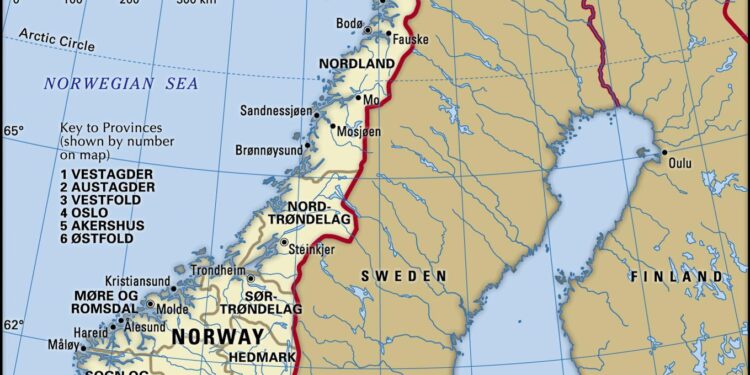Norway’s government is reportedly considering a ban on cryptocurrency mining activities in response to growing concerns over the nation’s energy supply. As crypto mining operations consume substantial amounts of electricity, officials fear the surge in demand could strain the country’s renewable energy resources and impact the broader energy market. This potential policy move highlights the ongoing global debate over balancing technological innovation with environmental and energy sustainability.
Norway’s Energy Challenges Drive Push for Cryptocurrency Mining Restrictions
Norway’s abundant hydropower resources have long positioned the country as a leader in sustainable energy usage. However, the recent surge in cryptocurrency mining operations has sparked growing concerns over electricity consumption, especially during periods of reduced water flow and increased domestic demand. Authorities fear that the high energy requirements of crypto mining farms could strain the national grid, potentially leading to increased prices and supply instability for both households and essential industries.
In response, the government is considering a range of restrictive measures, including a potential ban on large-scale crypto mining activities. Key points under discussion include:
- Prioritizing residential and industrial energy needs to ensure stable power supply.
- Implementing stricter licensing and energy consumption caps for crypto mining operators.
- Encouraging investment in energy efficiency and alternative cooling technologies to reduce environmental impact.
| Factor | Current Status | Proposed Action |
|---|---|---|
| Energy consumption by crypto mining | ~1.5 TWh annually | Limit to 0.8 TWh |
| Hydropower capacity usage | 75% at peak times | Reserve for essential services |
| Grid stability risk | Moderate | High monitoring & penalties |
Potential Impacts of a Crypto Mining Ban on Norway’s Digital Economy
The proposed ban on crypto mining presents significant challenges for Norway’s evolving digital economy. With the country increasingly positioning itself as a hub for blockchain technologies and digital innovation, halting mining operations could *stifle growth* in this emerging sector. Many startups and established firms rely on crypto mining both for financial backing and for creating new infrastructure supportive of Web3 development. Job displacement in regions heavily invested in mining could also have a ripple effect on local economies, where specialized technicians, engineers, and data center workers might face sudden unemployment or forced reskilling.
On the other hand, the decision could push stakeholders toward more sustainable and compliant business models. Norway’s abundant renewable energy resources mean the government’s real concern revolves around energy allocation and grid stability. Transitioning crypto mining operations off the grid or encouraging innovation in low-energy consensus algorithms could mitigate some negative impacts. Below is a breakdown of potential effects on the digital economy:
- Innovation slowdown: Reduced funding and operational capacity for blockchain projects.
- Positive environmental impact: Lower carbon footprint aligning with national climate goals.
- Energy market relief: More available power for traditional industries and households.
- Shifts toward alternative technologies: Increased investment in proof-of-stake and other energy-efficient blockchain protocols.
| Impact Area | Potential Outcome | Short-Term Effect |
|---|---|---|
| Employment | Job losses in mining hubs | High |
| Innovation | Slowdown in blockchain project development | Moderate |
| Energy Grid | Reduced load and improved grid stability | Positive |
| Environment | Lower carbon emissions | Positive |
| Technology Adoption | Shift towards energy-efficient blockchain solutions | Moderate |
| Criteria | Metrics | Policy Action |
|---|---|---|
| Energy Source | Percentage from renewables | Tax incentives for >70% |
| Energy Efficiency | Power usage effectiveness (PUE) | Grants for PUE < 1.2 |
| Grid Impact | Consumption during peak hours | Usage caps and penalty fees |
| Innovation Index | Use of low-energy protocols | Priority licensing |
Concluding Remarks
As Norway’s government continues to weigh the environmental and energy implications of cryptocurrency mining, the potential ban highlights the growing tension between digital innovation and sustainable resource management. Stakeholders across the industry and political spectrum will be closely monitoring developments, as any policy decisions could set a precedent for other nations grappling with similar energy supply challenges.
















